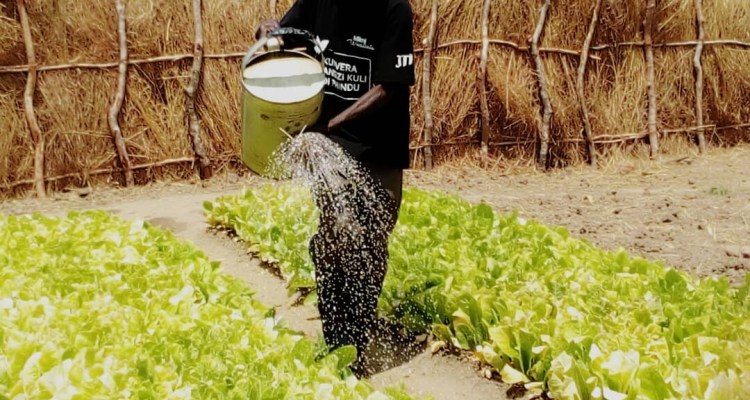
In Malawi, tobacco is considered “green gold”, incontestably the most profitable crop in this highly agrarian economy. Per tonne it has over 20 times the value of Malawi’s next biggest export, tea. After foreign aid, tobacco is the largest source of income for the country, comprising over 70% of export earnings.
The main type of tobacco grown in the country is burley which in 2010 accounted for 94 percent of total tobacco production. Other types of tobacco grown in Malawi are northern division dark fired, flue-cured, southern division dark fired, sun-air and oriental tobacco.
Japan Tobacco International (JTI) is one of Malawi’s largest Tobacco buyers and through its contracted farmers across the country it has managed to buy Tobacco which is highly recommended by the international buyers.
Mzimba District in North- western Malawi is one of the districts where JTI Leaf Malawi buys Tobacco.
Fraiser Chunga, a grower from Kapembelwa Village in Mzimba District, conducts a lot of farming activities through irrigation system using Solar Power System and Borehole which was given to the area by JTI Leaf Malawi.
Chunga told Malawi24 during a field visit to the area that he has benefited a lot from Tobacco growing ever since he started working with the company 8 years ago and has managed to build 4 houses and buy 5 cows after selling his Tobacco.
Chunga added that with the help of the Solar Powered water System which is used to supply water to drums, he has been practicing crop diversity by growing crops like Maize, Tomatoes, Kapilipili pepper and different vegetables which he has been selling to make money.
Apart from Kapembelwa, in the same district of Mzimba, the company built a Village Clinic at Madise Trading Centre. The clinic is for Under-five children,

Health Surveillance Assistant for Clinic Knox Wiseman Sichinga said that the coming in of the clinic helped to reduce Under-five children deaths in the area and surrounding communities from 15 children per year to 1 child per 2 years. He added that it has encouraged the use of family planning methods.
Sichinga went on to say that people in the area had to walk 12 kilometres in order to access medical treatment but with coming of the health institution, 15,000 people get medical assistant from the clinic.
“We are very grateful to JTI for providing us with this clinic, water tank, piped water and Solar power which is very helpful to our services. However, there is a problem of shortage of medicine at our clinic more especially Maria and Cough and Flue drugs. We have also no mode of transport as well as shortage of medical personals,” he explained
Students of Chilida School in the district also benefited from the company after it built a model school and provided them with resources that needed at institution.
Headteacher of the School Patricia Buleya noted that the coming in of the school contributed to the increase of Pupils from 450 to 708 learners and pass rate from 67% to 85% because the school has all necessities to accommodate the students.
Corporate Affairs and Communications Director for JTI Limbani Kakhome said that the company focuses on Education and awareness, Household economic empowerment and ending child labour.
Kakhome added that as a way of reducing the amount of wood harvested for the construction of Tobacco curing structures barns, they have since 2013 promoted the growing of living barns and bamboos to replace traditional structures and wood requirements in the curing of burley Tobacco.














